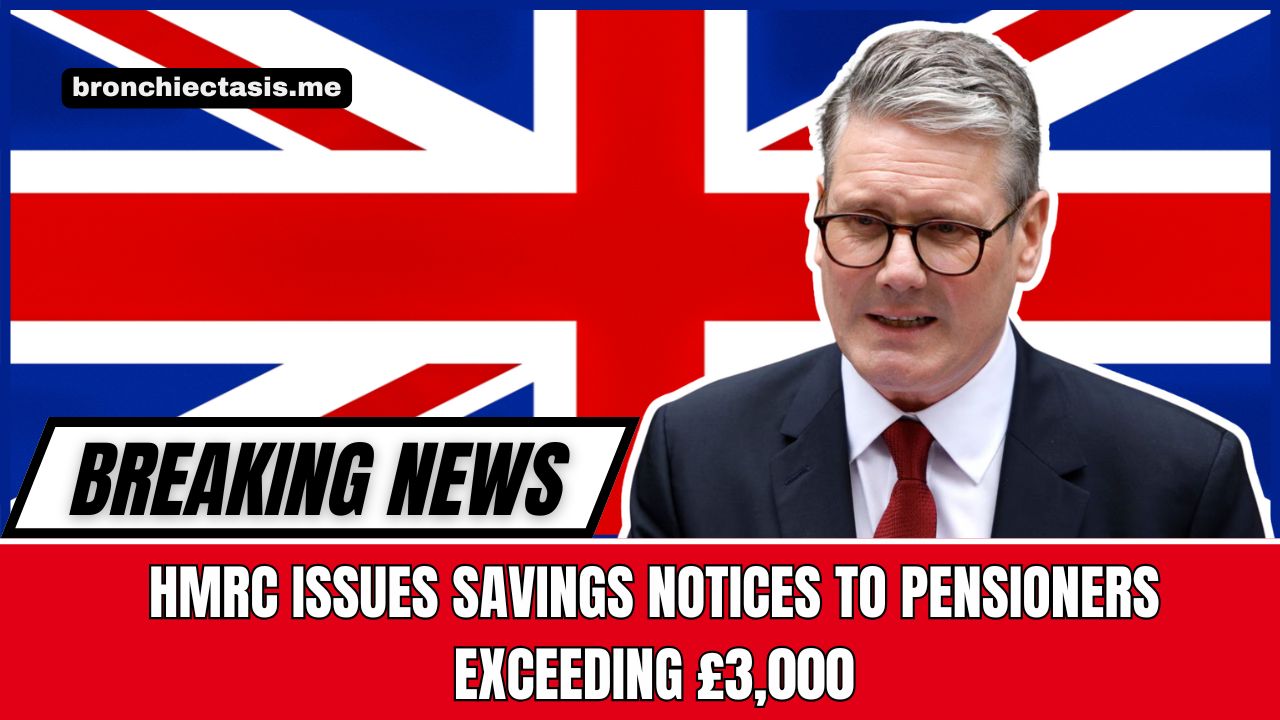A growing number of UK pensioners are receiving notices from HM Revenue & Customs (HMRC) if their savings exceed £3,000.
These alerts are intended to ensure accurate tax reporting, protect benefit entitlement, and help retirees avoid unexpected penalties.
What Is Triggering the Notices?
HMRC typically monitors interest income received from savings. While state pensions below the tax-free personal allowance are usually non-taxable, additional income—like interest, dividends, or investment returns—can push total income into taxable territory.
HMRC’s notices aim to confirm you’ve declared all such income correctly, especially if it could influence your tax code or benefit eligibility.
Why the £3,000 Savings Benchmark?
Although £3,000 isn’t a formal tax threshold, HMRC uses this level as a trigger for checks. When savings rise above this mark, the interest earned may exceed the Personal Savings Allowance (PSA), which for 2024/25 stands at:
- Basic-rate taxpayers: £1,000 interest tax-free
- Higher-rate taxpayers: £500 interest tax-free
- Additional-rate taxpayers: No tax-free allowance
If interest income surpasses the allowance, tax may be due on the excess. Pensioners with savings over £3,000 could be automatically flagged by HMRC.
How HMRC Detects Savings Income
Banks and building societies routinely share interest data with HMRC, but not all accounts report fully—particularly overseas accounts, older investment products, or certain credit unions. HMRC might issue notices if there’s:
- A discrepancy between reported and expected interest
- Missing declarations from non-reporting accounts
- A need to correct or adjust a tax code for accurate deductions
Effects on Pensioner Benefits
Savings over £3,000 don’t affect your State Pension, but they may impact means-tested benefits, such as:
- Pension Credit
- Housing Benefit
- Council Tax Reduction
Though Pension Credit includes a savings disregard of £10,000, anything beyond that may reduce eligibility—approximately £1 per week assumed income for each £500 in excess.
Common Reasons for Receiving a Notice
Pensioners might get alerted for reasons including:
- Interest paid exceeds declared amounts
- Missing or inconsistent savings records
- Underpayment of tax on existing savings
- Adjusted tax codes or mismatched HMRC data
- Discrepancies between benefit data and tax filings
Importantly, receiving a notice doesn’t always mean you owe money—it’s often an opportunity to clarify the situation.
What Pensioners Should Do Next
- Read the notice carefully to understand what’s required.
- Gather statements from:
- Bank and building society accounts
- NS&I and premium bonds
- Overseas or non-standard accounts
- Compare your own figures with HMRC’s to spot discrepancies.
- Declare missing interest via Self Assessment or your Personal Tax Account.
- Seek HMRC’s help if you believe the notice is incorrect—online, by phone, or by mail.
HMRC notices to pensioners with over £3,000 in savings are part of efforts to ensure tax accuracy and safeguard benefit entitlement.
While these checks may seem intimidating, most issues can be resolved through organized documentation and prompt responses.
If you’ve received a notice, acting quickly and staying informed will help maintain peace of mind—and eligibility—for your entitled benefits.
FAQs
Does having over £3,000 savings mean I must pay tax?
Not necessarily. You may stay within your PSA. HMRC checks are precautionary to confirm full declare-savings compliance.
Could HMRC recover unpaid tax automatically?
Yes. HMRC might adjust your tax code to collect savings tax via PAYE, reducing your take-home pay.
How can I best protect my benefits and avoid penalties?
Ensure all savings interest is declared accurately before deadlines. Use ISAs to shield interest from tax when appropriate.

